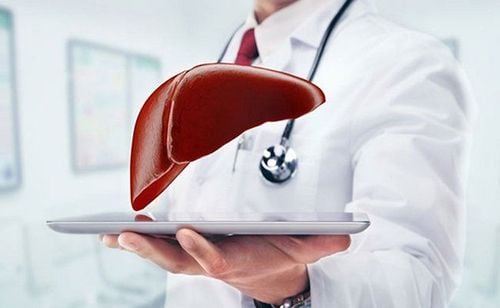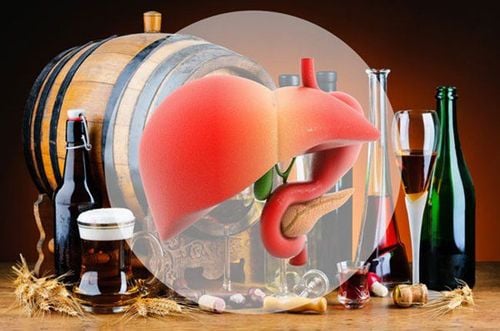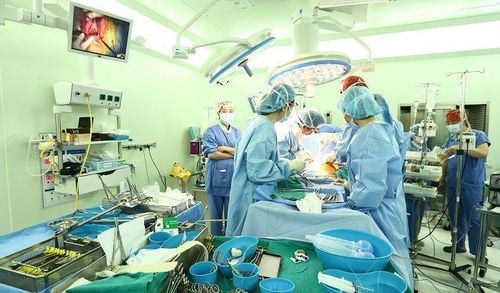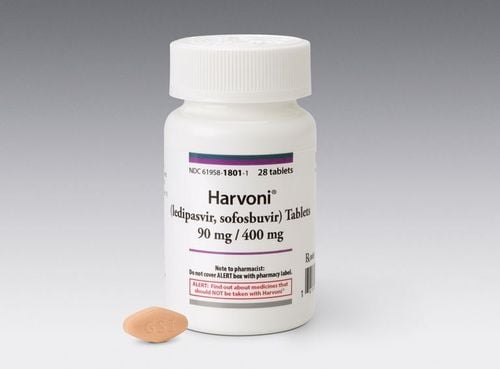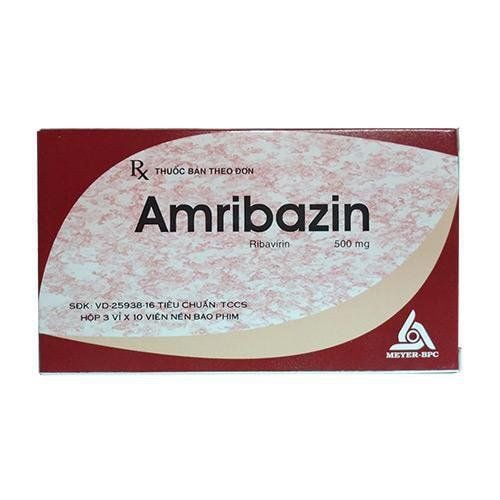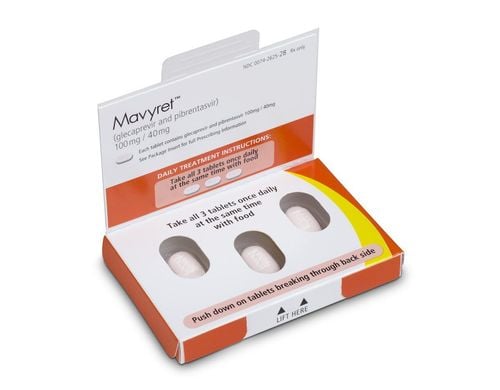This is an automatically translated article.
The article is professionally consulted by Master, Doctor Pham Manh Chung - Department of Diagnostic Imaging - Vinmec Ha Long International Hospital
There are many causes of liver damage. But often the liver is damaged in the same way: First, the liver swells, then scarring (cirrhosis). With treatment, the liver can heal. But if left untreated, over time, these scars will progress to cirrhosis, causing the liver to lose function. Finally, liver failure, ie the liver stops or is about to stop working, is very dangerous for life.
1. Symptoms of liver disease
At first, the signs of the disease are difficult to recognize, but as the condition progresses, you may notice itchy skin or easy bruising. The eyes and skin may become yellow, also known as jaundice. Some patients present with abdominal pain, loss of appetite or digestive disturbances. In addition, the patient may experience swelling in the legs, ankles and abdomen.
Most liver diseases are chronic diseases, progressing slowly over many years. But in some cases, the disease progresses very quickly. Although the symptoms are similar — including jaundice, pain, and digestive upset — acute liver failure develops over weeks or even days. This disease is very dangerous. See your doctor as soon as you have any of these symptoms.
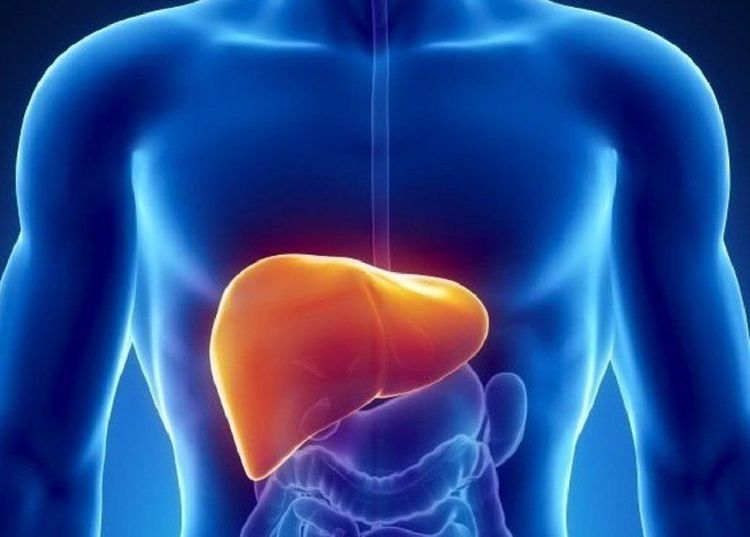
2. Cause
ObesityThe fact is that as the weight of the general population is increasing, the proportion of people with liver disease is also increasing. Excess weight increases the risk of nonalcoholic fatty liver disease, when fat builds up in the liver. In most cases, fatty liver is not too dangerous, however, if you do not change your diet and exercise in time, the condition will get worse and lead to cirrhosis or other health problems.
Alcohol
Drinking a lot of alcohol is absolutely not good for health. The active process of filtering alcohol from the blood of the liver creates harmful substances. So when you drink too much alcohol at once, these substances will destroy the liver. The early stage of alcoholic liver damage when excess fat builds up in the liver is called alcoholic fatty liver. If you continue to drink alcohol uncontrollably, you run the risk of developing alcoholic hepatitis, cirrhosis, and even liver failure.
Drugs and chemicals
Medicines that can sometimes cause acute liver damage include some antibiotics, acetaminophen, and non-steroidal anti-inflammatory pain relievers such as ibuprofen or naproxen. Usually this happens only when you take too high a dose or take these drugs with alcohol and other drugs. Prohibited substances such as heroin and cocaine also cause liver damage. Herbal extracts and tonics, as well as chemicals used in factories or cleaning chemicals in dry cleaners, pose a similar risk.
Infection
Viral hepatitis, including hepatitis A , B and C and other viruses can cause acute or chronic liver damage. The risk of viral hepatitis is increased by sharing needles during drug use, having unprotected sex, having sex with many people, and living in endemic areas with unsafe water and food sources. tell.
Autoimmune diseases
When the immune system is overactive, it can reverse attack healthy parts of the body, including the liver, such as autoimmune hepatitis and primary biliary cirrhosis. At this time, treatment mainly focuses on controlling the immune system's responses.
Bile ducts and bile duct obstruction
Primary sclerosing cholangitis causes scarring in the bile ducts, which transport bile from the liver to the intestines. Over time, it can seriously damage the liver. A rare syndrome is Budd-Chiari Syndrome, when blocked veins in the liver cause similar damage to the liver. Gallstones block the bile ducts causing jaundice and other problems. The risk of gallstones is also increased when a person has liver disease.
Cancer
There are many different forms of cancer that can affect the liver, although most of these cancers metastasize from other parts of the body. The risk of liver cancer, which is the primary cancer of the liver – increases when your liver is damaged by fatty liver, cirrhosis, hepatitis, liver failure and other conditions. In these cases, your doctor will recommend regular checkups to catch cancer early.
Genetics
Some people are born with factors that cause liver damage. Some people develop symptoms at an early age, but some have no symptoms until 40-50 years later. Alpha-1 antitrypsin (A1AD) deficiency means that the body is not able to produce a special protein to protect the liver from damage. Tissue iron overload causes iron to build up in the liver. Similarly, some people with Wilson's disease have livers that contain too much copper.

3. Methods of diagnosis of liver disease
Initially, the doctor will check with a liver function blood test to check the functioning of the liver. Imaging tests such as ultrasound, computed tomography, and Magnetic Resonance may be ordered to check the extent of the lesion. Some people may be ordered to have a biopsy, where a doctor uses a fine needle to take a small sample of the liver and conduct a histopathological examination.
4. Methods of treatment
For liver diseases detected early in the early stages, lifestyle changes can improve liver health radically. Even in the advanced stages, lifestyle changes can help minimize liver damage.
Stop drinking alcohol
Whether the condition is severe or not, the liver will be happy if you stop consuming alcohol products. Stop drinking alcohol, liver cells will not be damaged, helping to quickly recover from the disease.
Eat healthy and exercise regularly
If you are overweight, try to lose weight, to improve liver health and even cure some early liver diseases. Exercise regularly whether or not you have problems with your weight. Eat a nutrient-balanced diet, eating plenty of healthy grains, fresh fruits, vegetables, and lean meats. Eat plenty of fiber and limit the intake of greasy foods like fried foods.
Please read the label carefully before taking the medicine
Take the medicine as directed. Do not take more than the prescribed dose. And absolutely do not take the drug with alcohol. When you already have liver problems, always consult your doctor before taking any medications, supplements and vitamins.
Protect your health
Regular health check-ups so that the doctor can monitor the progression of the disease, if any. Always follow treatment guidelines such as recommended high blood pressure or diabetes as these conditions can make liver conditions worse. Talk to your doctor about getting the hepatitis vaccine to protect your liver from viral hepatitis.
Please dial HOTLINE for more information or register for an appointment HERE. Download MyVinmec app to make appointments faster and to manage your bookings easily.
Articles refer to the source: Webmd.com





